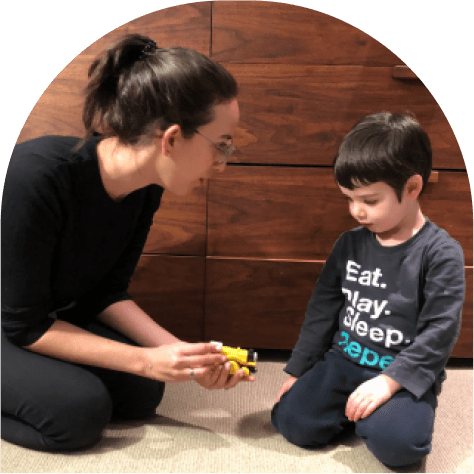Stuttering is a speech disorder in which the flow of speech is interrupted by repetitions and/or prolongations of sounds, syllables, words and phrases.
- Repetitions – People who stutter might repeat sounds (s-s-s-sit) and/or words (sit-sit-sit) and/or phrases (I sit-I sit-I sit) and/or complete thoughts (I will sit down-I will sit down-I will sit down)
- Prolongations – A prolongation involves a sound being dragged out for an extended period of time (e.g. I sssssssit)
- Blocks – A block is a long pause where the speaker has difficulty getting a word out (e.g. I (pause) sit)
People who stutter often have physical characteristics in their faces/bodies when they stutter. For example, a person who stutters might close their eyes tightly, move their hands, move their legs or even stand up while in a stuttering moment.
Stuttering can be worse during certain times of day or can be “triggered” by a big life event. For example, some people might stutter more when they are stressed and others might stutter more when they are tired. Children might stutter more when they go back to school after the summer.

